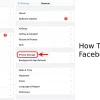Sports is one of the largest and most influential fields in the world. It’s long been a go-to form of entertainment that people consistently turn to in happy times and bad times and as a way to spice up the monotony of a daily routine. Even in the worst economic downturns, sports thrive. Like many entertainment fields, people flock to it to escape or boost their daily lives.
People love a challenge. They love to support the physical talents of the people that we admire. There is a reason why there are entire channels dedicated to sports alone, and that’s because not only is it hugely popular, but there is a lot of money in it. Sports teams and players earn their money from ticket and merchandise sales and from sponsorships and advertising. Add in the popularity of sports betting, and you can start to clock into the full system that makes sports media so big and influential.
It’s massive and constantly changing. That’s why there are so many professionals needed to make the massive beast that is the sports industry keeps turning. This means that you have plenty of opportunities to work as a journalist. You could work as a traditional journalist, broadcast journalist, or even behind the scenes.
As with all media industries, it’s all about who you know. While you’re establishing yourself as a sports journalist, for example, you may want to consider working in a related role that gets you into action and meeting the people who can help you with your ultimate goal. Someone who starts off working as a media manager could end up working as a broadcast journalist in the same production, for example.
Roles in Sports Media
There are many roles in sports media that you’ll want to consider at the start of your career, especially when you’re just starting out. This doesn’t mean that you’ve given up on your ultimate goal. While working in a related role, you’ll also want to establish an online identity and personal brand. You’ll want to create content that people engage with, establish your credibility and expertise, and then use that to open doors directly into sports journalism.
Sports Editors
Editors are the support that all media needs to work properly. More than just quality assurance, editors are the ones who put together the media packages like highlights, graphics, and stats that broadcast journalists then use to offer an engaging, in-depth review. The same applies to any written journalism.
Working behind the scenes in any supportive role (since you’ll have to work your way up to being an editor) is great as it helps you understand the pace, the industry, and the quality of work that’s expected.
Sports Journalists
Sports journalists come in many shapes and sizes, and you don’t need to work for anyone else to be a sports journalist. You can create your own format and host shows on YouTube or other social media platforms. You can create a podcast or even a blog. The only caveat is that while there is nothing stopping you from going at it alone, it can take a lot of time and effort to build up a large enough production that you start to see enough income to support yourself. That’s why it’s important to get any role you can in sports media, even if it’s not exactly what you want to do right off the bat. You need to know the right people so that you can then collaborate with them or even just be on their minds when a new opportunity arises.
This doesn’t mean you shouldn’t try to build up your own platform. If you can manage to run your own production, you’ve essentially established your own business and are not just a journalist but an entrepreneur. This route, like most in media, is not going to be linear. Try everything, adapt your approach, say yes over and over, and eventually, you’ll start to find you can actively make decisions for your career instead of just reaching out blind.
Where You Can Work as a Sports Journalist
There are many different roles for sports journalists.
On Sports Productions
One of the popular places to work as a sports journalist is on sports production shows. For those just starting out, you may just work at fact-checking for the broadcasters or putting together fun facts that the pundits and commentators can draw from. Working on an actual production is great for those who want to work in mediaand not just in print. If you want to get your start as a broadcast journalist, or even a podcast journalist, then working on a production is a great choice.
This isn’t just because you’ll learn a lot, but also because of who you’ll meet. Sports stars regularly visit sports production facilities to be interviewed or to give an analysis. Add to the fact that most pundits today were once sports professionals themselves, and you start to see how great working at a sports production can be for your network and your career.
For News Media Outlets
News media covers sports all the time. There will be print articles, news articles, in-depth articles, and more. The difference, of course, between a news outlet and a sports production is that news outlets focus more on the news, while sports productions add news and analysis with entertainment. It’s a slight but very important difference.
In terms of which option is best for those just starting their career, there isn’t much difference. You’ll learn a lot in either field. News media does have its own tv production, so if print isn’t right for you, then you can try to get onto a news channel production instead. Both options will be great for your career. The only difference is that who you know will differ, and the way you take forward will vary.
Since it can be hard to get your foot in the door, take what you can get and then use your network to help you get better job opportunities from there.
As an Independent Journalist
As stated, there’s nothing stopping you from establishing yourself as an independent journalist at any time. In fact, you should start building up your brand and credibility from day one. This way, you can grow your audience independently while also learning on the job and growing your professional network the good old-fashioned way.
Working to develop a personal brand and grow your audience is also excellent practice. You’ll be learning a lot about branding, content creation, analytics, and digital marketing. Use the time at the start of your career to play around with different approaches and see what works, what doesn’t. This way, when your career starts taking off, you’ll have ironed out the kinks of your digital presence and can start to grow an engaged audience that can open up more doors than just focusing on your career alone.
How to Learn the Skills of the Trade
There are a lot of skills that you’ll need to work in sports media. You’ll want to learn these skills with a variety of different approaches.
With a Degree
A degree is the perfect way to learn the basics and develop the skills you’ll need to work as an effective sports journalist in today’s age. With a top sports journalism degree online program, you’ll be able to masterfully link and explain the nuances present in sports. You’ll be able to talk about how race, ethnicity, and gender all play a role and discuss these topics respectfully. You’ll also learn how to conduct yourself properly, as you’ll be trained in the best journalist practices that will help you establish yourself as a credible, reliable sports media journalist that others can rely on. You’ll be trained on how to interview, create podcasts, and even how to cover events in realtime. In short, you’ll be trained in all the essential skills that a present-day sports journalist needs to succeed.
On the Job
Working in sports media in any role you can get is how you’ll learn the ins and outs of the industry. You’ll learn the lingo, the pacing, the formula, and even the hidden stories that make sport so compelling. One thing to keep in mind when it comes to learning on the job is that there’s a limit you’ll learn in your single position. It’s up to you to tell your superiors what you’re interested in and what you want to learn. Shadowing and even being brought on in new roles is common in media, so long as those around you know your goals and that you’re someone who wants to excel. Show initiative, be respectful, and push for more learning opportunities until those learning opportunities become job opportunities.
Trial and Error
One other big benefit of establishing an online presence and building up an audience of your own is that it gives you more than enough opportunities to learn through trial and error. You’ll learn all about content creation, community engagement, digital marketing, and even about analytics.
Short Courses
If there’s a new program that you don’t know how to use, then there are a few different ways you can approach learning it. To start, you can shadow. Shadowing is a great way to learn the workflow the real professionals use to get the job done. You can also watch free online tutorials. You can even just get the program yourself and try out different things.
If you need structure, however, and want to learn a new tool as fast as you can (and prove you can use it), then you’ll want to look for a short course. These only take a few weeks, and you’ll be taken through how to use the program step-by-step. This will help you learn how to operate the tool in question, but as for actually creating quality content with the software, that’s down to practice.
How to Set Yourself Apart as a Sports Journalist
The best sports journalists are famous figures all onto themselves. That’s why it’s important to have a platform. You don’t need to be famous before creating a brand identity or growing an audience. Yes, if you have a notable name, then it will be faster and easier, but it isn’t essential.
You can create a thriving online identity and grow your audience. This then opens up doors of possibility. You can earn a secondary income just by monetizing your audience’s attention. Advertising and sponsorships are simple, effective ways to get paid for creating valuable content for your audience.
If you create niche, in-depth content that people will pay a premium for, then you can even earn money independently that way. You can offer your content behind a paywall or use a platform like Patreon to get your audience to support you in monthly installments.
The biggest benefit of having an audience as a journalist is that it means you have a readership. Publications will be more likely to buy your stories and articles as an independent journalist when you have an active audience that will very likely buy that copy just to read your work.
Don’t just stop at your own audience, either. Collaborate. If you manage a podcast, get other sports journalists on as guests. Interview sports professionals or even media specialists. As soon as you collaborate in this way, you bring in your guest’s audience under your umbrella. If you offer quality, valuable content, then that new audience may just stick around.
Never underestimate how important it is to make a name for yourself as a journalist. If people recognize who you are and what you do, then your career will lift off. You’ll have more ways to earn money, more opportunities, and the credibility and backing you’ll need to book increasingly bigger guests, all the way to the biggest sports figures in the world.
All of this takes time and unending dedication. You may never be the best of the best, but you can make a mark. So start today, stay focused, and keep at it. You can check some important useful information for beginners too. That will help you a lot.










